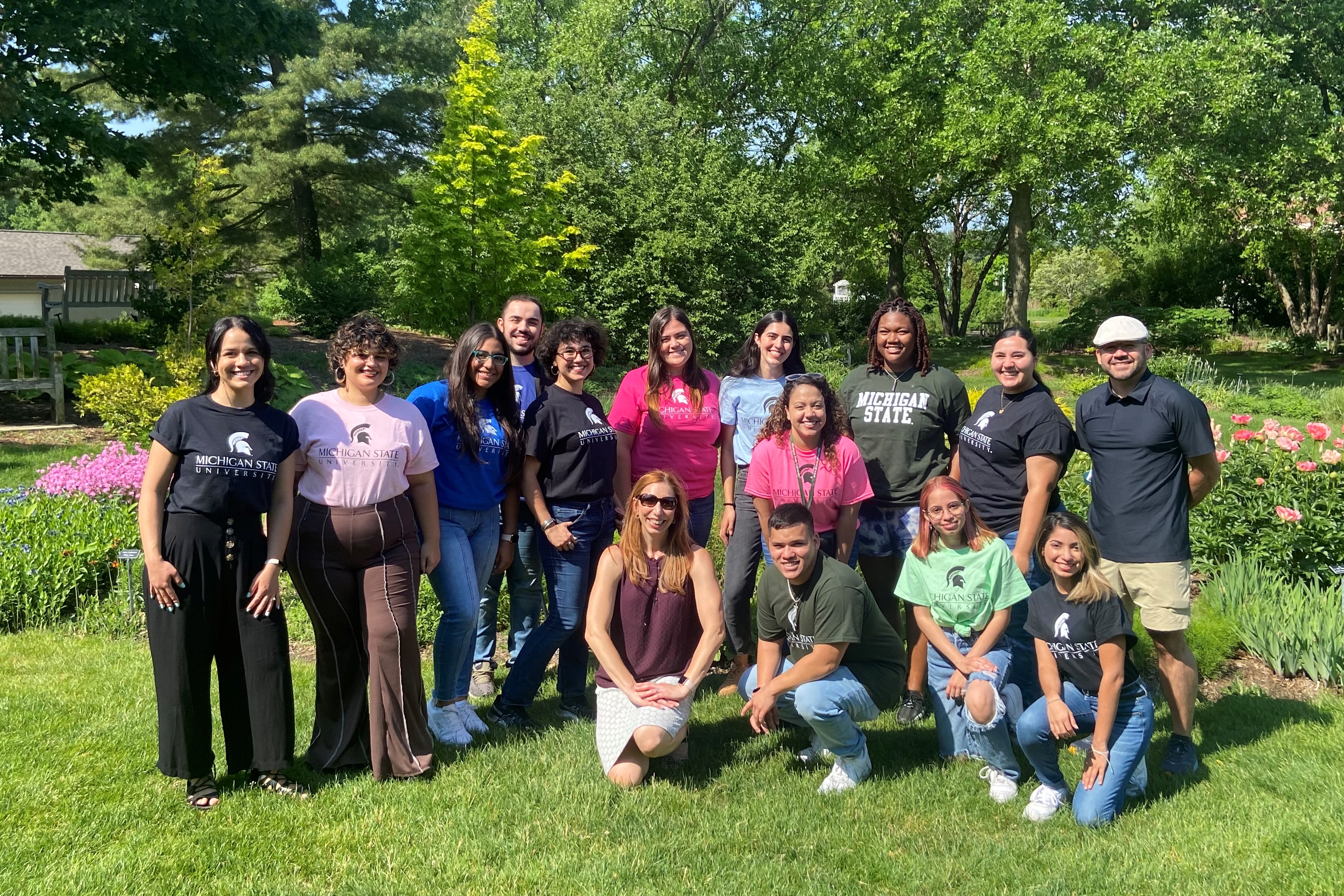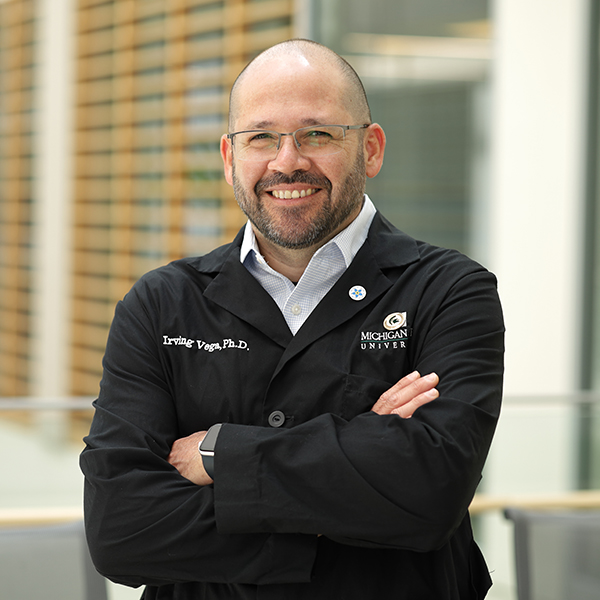Vega ‘Pays It Forward’ Mentoring Hispanic Students Exploring Neuroscience Research Careers
October 30, 2022
While working toward his PhD, Irving Vega found some faculty members who encouraged him and others who questioned why he, the first member of his family to attend college, was even there.
“I had some very good mentors, but I also had some very bad people who tried to block my progress,” he recalled, “because I didn’t fit the mold.”
As it turned out, the doubters were wrong. Vega eventually earned a PhD in cell biology and neuroscience, became a highly respected researcher in Alzheimer’s and other neurological diseases at Michigan State University, and recently was honored with the title of Red Cedar Distinguished Faculty.
Since January, he has taken on additional responsibilities as the director of a program at MSU to increase diversity in the neurosciences, much like one at the University of Puerto Rico that encouraged and helped him keep studying toward a research career.

“If it was not for programs like this, I don’t think I’d be here,” Vega said. “These programs provide equity and inclusion.”
At MSU, he directs the Bridge to the PhD in Neuroscience Program (BPNP), an ENDURE (Enhancing Neuroscience Diversity through Undergraduate Research Education Experiences) program funded by the National Institutes of Health to raise interest and opportunities in neuroscience for undergraduate students who are underrepresented in the field.
This past summer, a dozen minority and marginalized students from all over the country, including Puerto Rico, arrived in East Lansing and Grand Rapids for 10 weeks of workshops, research, and meetings with faculty/mentors. Many already have applied to PhD programs and medical schools at MSU and other universities.
“We encourage them to apply here, but also to apply at other institutions,” Vega said. “We bring them here with the idea that maybe we can recruit them.”
Four of the students have remained at MSU for a semester in residence, taking neuroscience courses and conducting research. Under the program, their room, board, and other expenses are covered.
 In November, Vega will accompany the students to the annual meeting of the Society for Neuroscience in San Diego, where they will present their study findings.
In November, Vega will accompany the students to the annual meeting of the Society for Neuroscience in San Diego, where they will present their study findings.
“This gives them an opportunity to be exposed and be recognized by recruiters,” Vega said.
In addition to his own research and other community outreach, Vega agreed to head BPNP in January after William Atchison, PhD, who had directed the program since its start five years ago, retired.
Vega had directed a similar ENDURE program at the University of Puerto Rico before joining MSU.
Many promising students are denied entry to PhD and MD programs “not because of lack of skill,” he said. “It’s because of lack of opportunity. I know the value and how these programs can impact someone’s career. My experience through mentoring helped me develop this inclusive mentoring philosophy.”
The goals of ENDURE and BPNP are not only to increase diversity in the neurosciences, but to reduce health care disparities for minority and marginalized patients and increase their participation in clinical trials, said Vega, an associate professor in the College of Human Medicine’s Department of Translational Neuroscience.
“Patients will feel more comfortable,” he said, “when they see someone who looks like them.”

